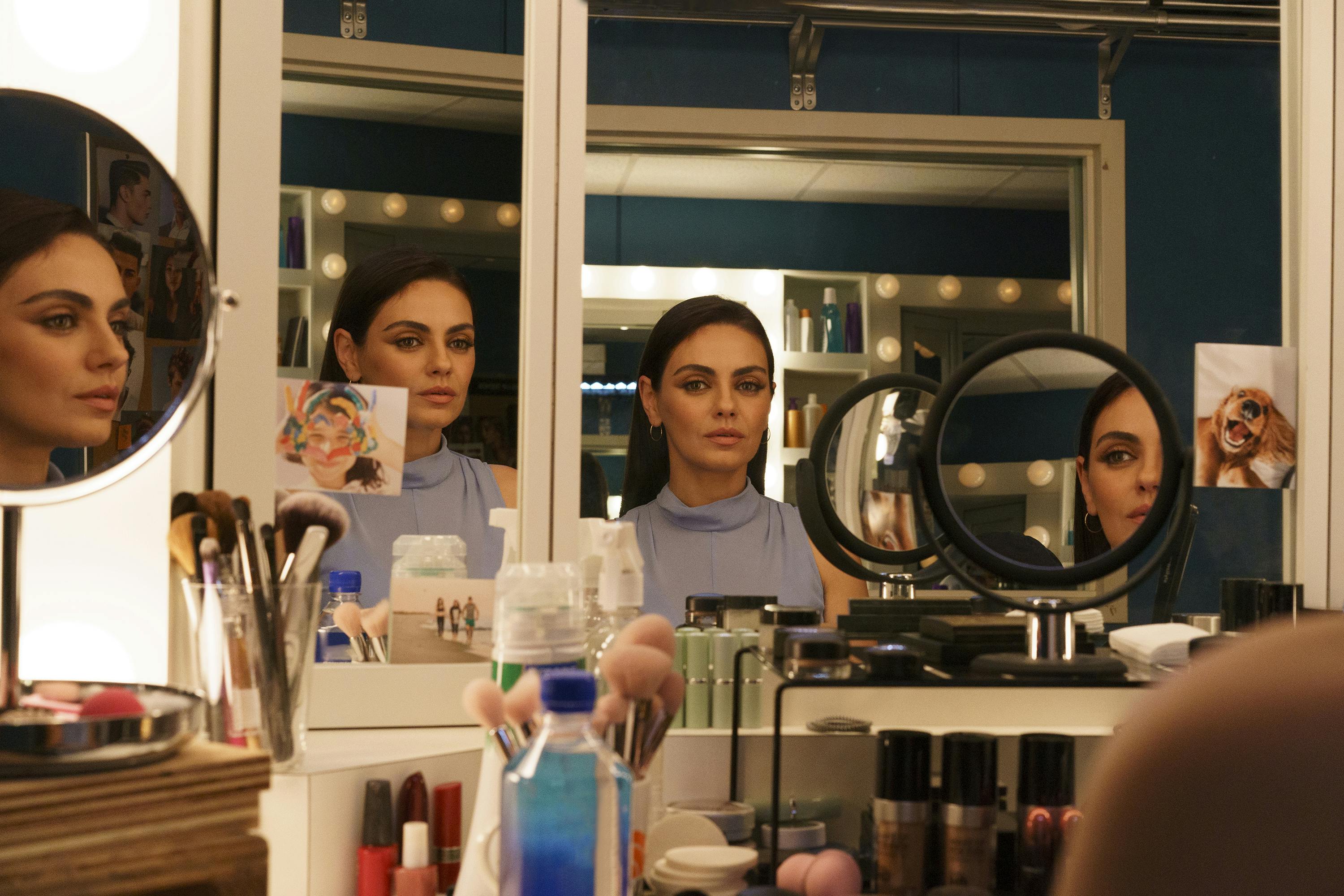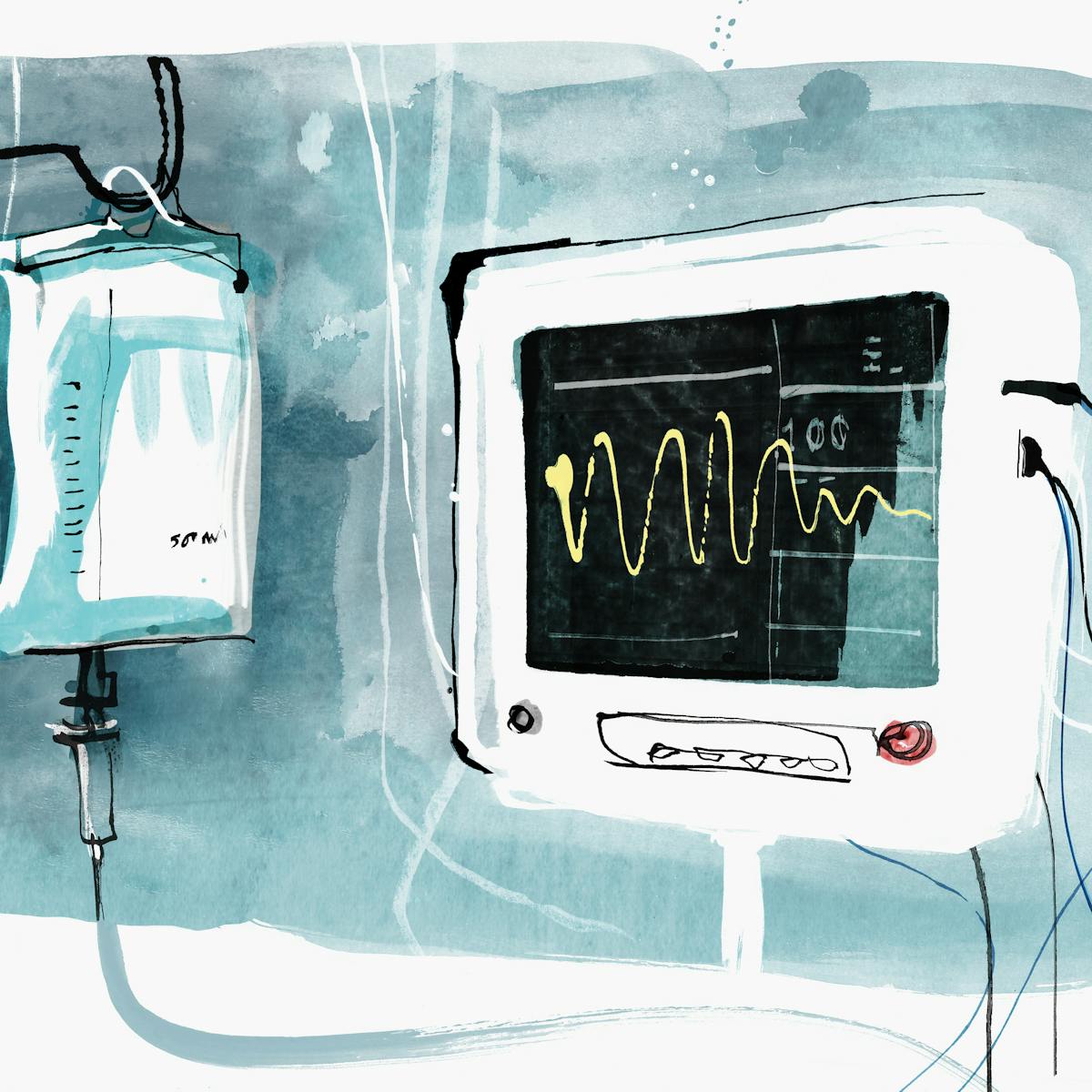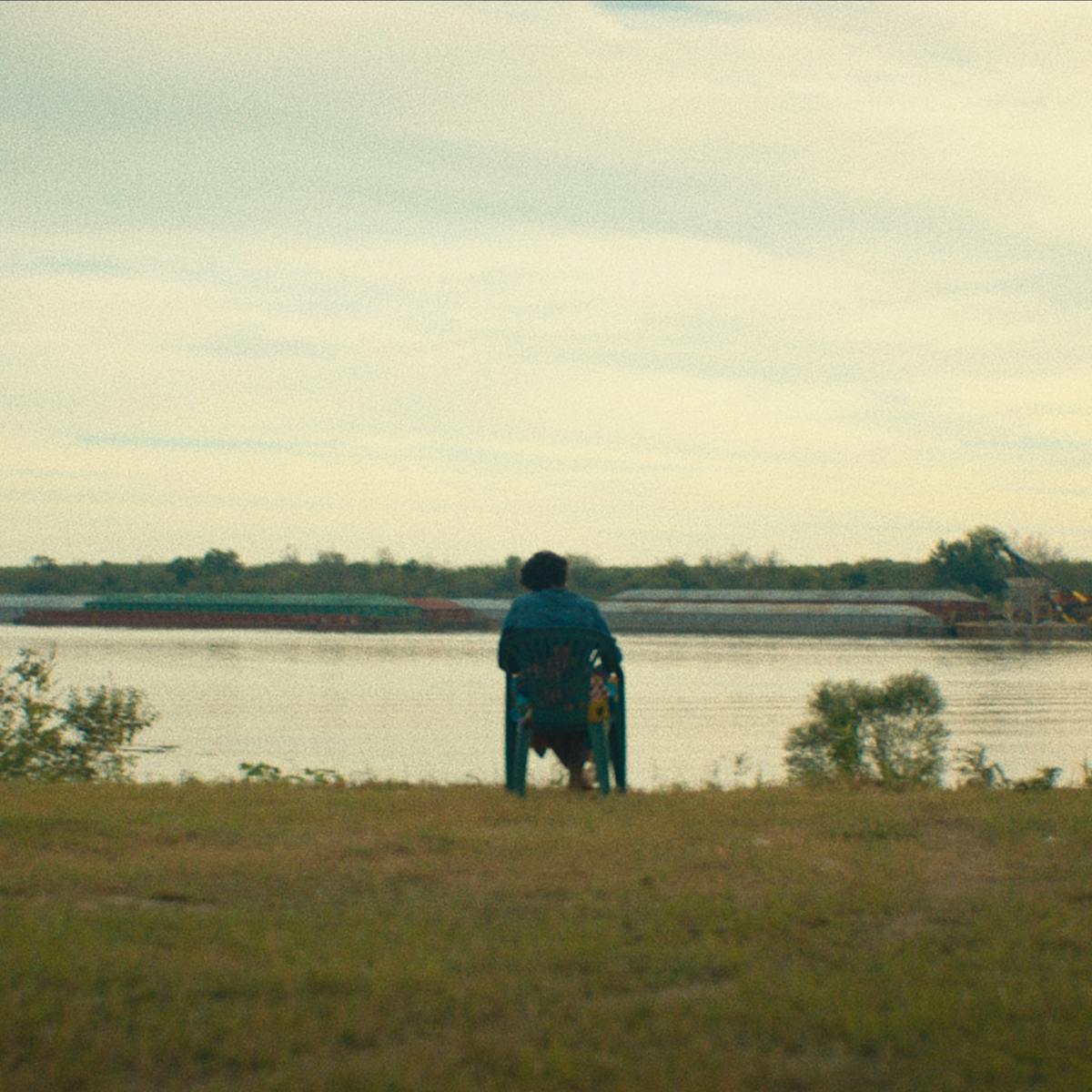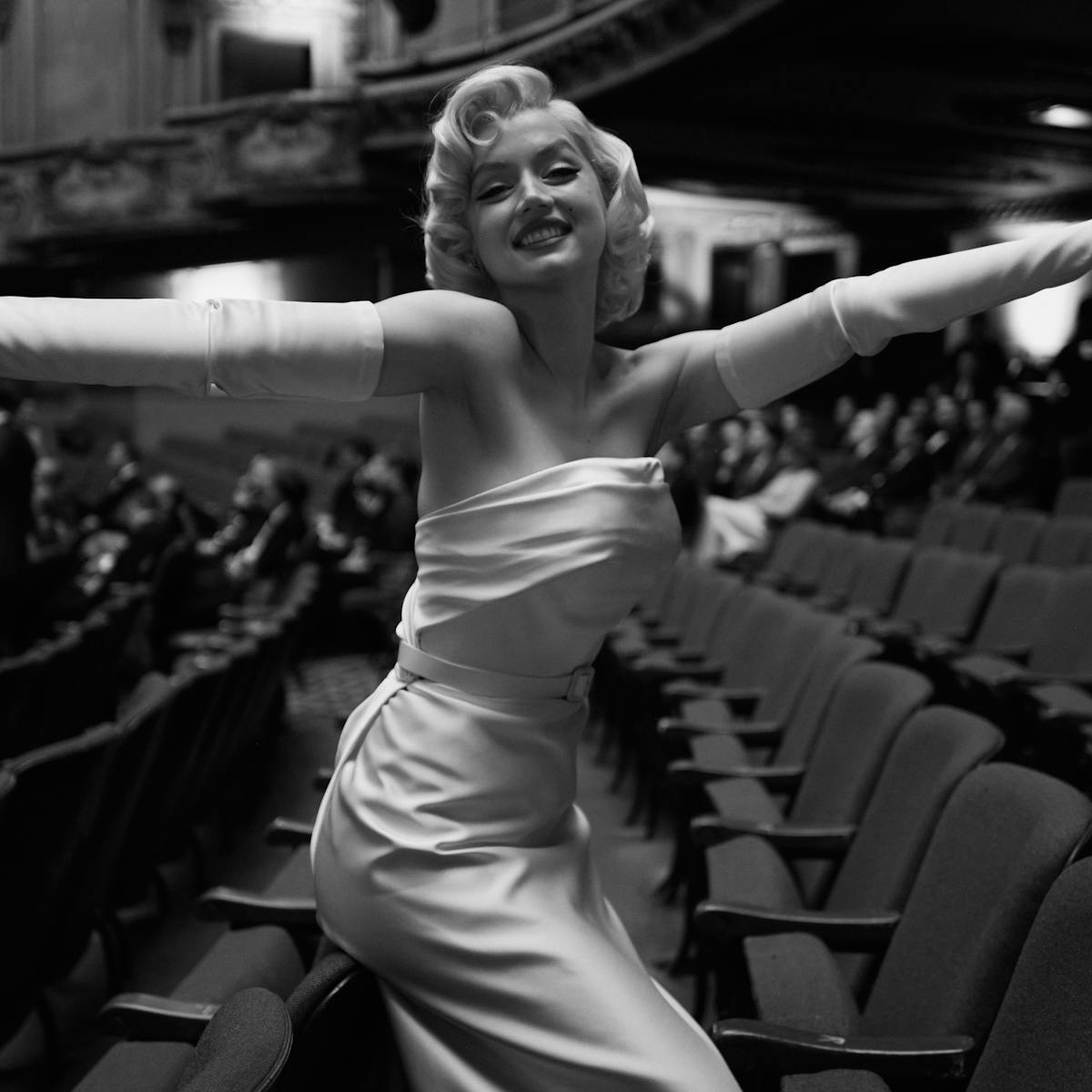The beloved actor stars in and produces Mike Barker's psychological thriller, Luckiest Girl Alive.
Like many avid readers, Mila Kunis picked up a copy of Jessica Knoll’s New York Times bestseller Luckiest Girl Alive when it was published in 2015, devouring every twist of the weighty psychological thriller. But when the screenplay for a feature film adaptation, penned by Knoll herself, crossed Kunis’s desk years later, it took her a moment to place the familiar-sounding title. Once she did, the actor-producer eagerly devoured the impactful story anew. “I thought the voice was different and exciting,” Kunis says. “What makes this one stand out to me is the fact that it’s loosely based on somebody’s life and the actual tone of the film [is one] that I don’t think we have seen before. That to me was the most exciting, finding that tone.”
Serving as both star and producer for the new film — which was directed by Mike Barker (The Handmaid’s Tale, Fargo) — provided Kunis with the opportunity to play a central role in shaping the compelling dark drama. She plays Ani, short for Tiffany, a magazine editor living in New York who’s struggling to feel the right sort of excitement about her impending marriage. Personally and professionally, Ani exudes all the trappings of success, but her outwardly perfect exterior is a facade she’s constructed to conceal unimaginable trauma.
During Ani’s days at a tony private academy, she was sexually assaulted by three fellow students and subsequently present during a shooting at the school, one that claimed the lives of two of her attackers (Cruel Summer’s Chiara Aurelia plays the young Ani in flashback). Although rumors about her involvement in planning the massacre persisted for years, she’s never gone on the record about her experiences. When Ani is approached by a documentary filmmaker strongly urging her to speak publicly about what transpired, she is forced to confront the reality of what happened, even though doing so threatens to destabilize the enviable life she’s built for herself.
It’s a powerhouse dramatic role for Kunis, who rocketed to stardom as Jackie Burkhart on long-running series That ’70s Show — a role she’s set to briefly reprise for Netflix’s upcoming That ’90s Show alongside husband Ashton Kutcher as Michael Kelso. Since 1999, she’s voiced the character of Meg Griffin on the animated sitcom Family Guy and appeared in big-screen comedies including 2008’s Forgetting Sarah Marshall, 2012’s Ted, 2016’s Bad Moms, among others. But she’s also taken parts that point to her impressive dramatic range, such as in Darren Aronofsky’s 2010 Academy Award-winning thriller Black Swan.
And she’s just as powerful offscreen: The daughter of Ukrainian immigrants who moved to the United States with her family at the age of 7, Kunis was recently named one of Time Magazine’s 100 Most Influential People for the fundraising work she’s done to assist the war-torn country following the invasion of Russian forces.
Kunis recently spoke with Queue’s Krista Smith about the experience of making Luckiest Girl Alive, how she approached this challenging role both in front of and behind the camera.
An edited transcript of the conversation follows.

Ani (Mila Kunis)
Krista Smith: Luckiest Girl Alive tackles some tough themes. At one point, you’re like “Rape. Yeah, it’s a bad word. It makes my skin crawl. Say it over and over again, I want you to be familiar with that word.” I love that scene because that is an uncomfortable word, and this film really examines that. For you, how important was it to get the tone right, to bring this kind of story to light?
Mila Kunis: Right. It’s loosely based on something that Jessica Knoll went through. For me, it wasn’t something that someone could watch and go, “I call B.S., this couldn’t happen.” Because it did. That’s why I thought that this was an important story to tell. She was always really honest with the shame that the character felt. I thought that was interesting because it goes back to the [question of], Are you a survivor or are you a victim? It’s figuring out, Do we need to label ourselves? But also, What are you? Who are you? What do people want you to be? It’s coming to terms with all of that. I thought that that was important to showcase.
Chiara Aurelia plays young Tiffany. As an actor and as a producer, what were the challenges in navigating the idea of seeing this person at two very different points in her life?
MK: As an actor, none. As a producer, getting people into the country in peak pandemic to do location scouting, when you weren’t allowed to go to the locations, was the biggest challenge. Chiara was coming from one part of the country, Mike Barker was coming from a different part of the world. I was coming from a separate part of the country. Seeing if anybody could ever be at the same place at the same time, that was an impossible task. For the first two weeks of production, while I was quarantining in Canada, they were shooting Chiara’s stuff, and I got to watch dailies every night. [As an actor], I wouldn’t say I studied Chiara because there was no mimicry. But, when I got to set, we chose one or two things to integrate.
This film feels so relevant to our current moment. It starts to dig into the female condition, that idea of, Oh, you’re beautiful, you have everything.
MK: Just to add to your point, we are living in a time of social media where everybody [presents] a perfect version of themselves. Whether they believe it or not, it’s what they want people to see. Nobody’s ever talking about what is actually happening behind closed doors. Even if you never had trauma, most people can relate to the idea of projecting what it is you want people to believe you are versus who it is that you really are.

Young Ani (Chiara Aurelia)
How do you feel about that as you’re not on social media? How do you think about that as a mom?
MK: It’s not a secret in our house that it exists. My eight-year-old’s fully aware of it. She has seen millions of TikToks from her friends. We talk about it. My husband will sit down and be like, “Here is what the internet looks like. When you are 16, 17 and that is something you want to deep dive into, I won’t be able to stop you. But you are not getting social media until you get a phone. And you’re not getting a phone until you can afford your phone. You won’t be able to afford your phone until you can get a job. And if you can hold a job and be responsible and buy a phone, you probably can maintain a social media account.” We say this very openly.
Well, it’s interesting because you and your husband, Ashton, have really used social media as a key part of the philanthropic work you’ve done, raising money for Ukraine and bringing that struggle to Americans on a firsthand basis.
MK: Oh, I think the internet can have so many amazing possibilities; social media does too. You just need to have a brain that is formed enough and a self-esteem that is formed enough so all the horrible things will not deter you from being able to do all the good. I don’t think that social media is bad, nor do I think it’s ever going to go away. But I think that a 14- or 15-year-old that is going through so many other things . . . to have everything be so permanent in their life, let alone a 20-year-old or a 30-year-old [is unhealthy]. I probably am just now at 39 in the mindset of being like, Oh, maybe I can look at people’s comments, but I don’t want to. You know why? Because I like myself. I don’t want to feel worse.

Ani (Mila Kunis)
You’ve always had incredible confidence. You’ve had such clarity of who you are in the world. You never seemed to be derailed by a lot of the potholes that can happen, especially for young women in this industry.
MK: Before I signed with my manager Susan Curtis, my parents worked multiple full-time jobs. They were like, “If this is something you want to do, you’ve got to figure this out.” They barely spoke English. So I was like, “Okay, I’ll figure this out.” I was nine. I had this false sense of bravado because the idea of failure meant that I couldn’t do what I loved. I met with a bunch of people, Susan Curtis being one of them, and she’s been my manager for 30 years now. The beautiful thing about that is I have always been protected, 100% of the time. That woman was ahead of the curve on so many things in this industry and protected me and nurtured me. I do want to say I have awesome parents — unbelievable, stubborn, awesome parents. But as far as being nurtured within the industry, I got lucky with Susan Curtis, but let me not discredit my awesome parents.
You briefly appear on That ’90s Show. Was it fun to go back and revisit that character, that time in your life?
MK: Oh my God. It was so weird because the stage is the same. The area that the show takes place in — the basement, the kitchen — that’s all the same. They updated it to make it look like 90s Wisconsin, which is more like 80s America, which is wonderful. And my husband and I are married in the show. It was so weird to shoot for me, not for him. He’s clearly a better actor than I am because I kept looking and going, “I can’t stop laughing. This is so weird.” And he was like, “Get it together.”
I do love the whole story of you and Ash. I remember reading a statistic that said 75% of people marry someone they knew in high school. That ’70s Show was high school basically for you, even though obviously the two of you didn’t begin dating until much later in your lives.
MK: It was high school for me. I started ’70s in ninth grade. We’ve been together 10 years, and I still think this is crazy. We had no idea. Anyone that says, “Oh, I knew back then, the two of them the way they were . . .” they are liars. Nobody knew. We didn’t know. It’s so crazy where life takes you.




